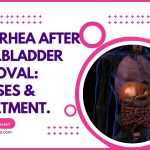Does Pepto Bismol Treat or Cause Constipation? Gastroenterologist explains
Our content is not intended nor recommended as a substitute for medical advice by your doctor. Use for informational purposes only.
What you need to know:
- Pepto Bismol is an antidiarrheal medicine.
- It is intended to treat diarrhea, not constipation.
- Pepto Bismol can cause constipation as a side effect.
- Pepto Bismol is contraindicated for the treatment of constipation.
- Taking Pepto Bismol for nausea, stomach upset, or gas may lead to constipation. Try to decrease the dose, shifting to another drug if Pepto Bismol results in severe constipation.
Does Pepto Bismol Bismol cause constipation?
Pepto Bismol is an antidiarrheal. It can cause constipation as a side effect. However, the incidence of constipation with Pepto Bismol is lower than Loperamide (Immodium).
In one study, Loperamide was eight times more likely to cause constipation as a side effect compared to Pepto Bismol.
Pepto Bismol acts by stimulating the absorption of fluids and electrolytes from your intestines.
Although this helps with diarrhea, The absorption of more fluids may cause hardening of your stool and constipation.
To avoid constipation from Pepto Bismol, Try to:
- Drink enough amounts of water or fluids. Being dehydrated increases the risk of constipation as your body absorbs the water leaving your stool to dry.
- Take the recommended dose. Pepto Bismol overdose may increase your risk of getting constipation.
- Stop taking Pepto Bismol once your diarrhea stops. Don’t take Pepto Bismol for long periods more than recommended.
Pepto Bismol can cause constipation as a side effect. The risk of constipation with Pepto Bismol is generally low. The constipation risk is related to overdosing and prolonged use.
More: causes of constipation with Gastritis.
Does Pepto Bismol help with constipation?
Pepto Bismol is intended to treat diarrhea, not constipation. Don’t use Pepto Bismol if you have constipation. It may worsen your constipation or cause stool impaction.
The uses of Pepto Bismol include:
- Acute diarrhea (as stomach flu and traveler’s diarrhea).
- Chronic diarrhea.
- Nausea.
- Anti-acid (antacid).
- Gas and bloating.
- Indigestion.
- Bismuth-based therapy is used to eradicate h. pylori infection (a stomach bug that causes gastritis, peptic ulcers, and stomach cancer).
SEE OUR FULL REVIEW OF PEPTO BISMOL.
Pepto Bismol helps the absorption of fluids and electrolytes from the intestine to your body. Laxatives act by drawing fluids from the body to your intestine, which help to soften your stool and relieve constipation.
Pepto Bismol does the exact opposite of laxatives. It Worsens constipation rather than relieving it. That’s why it is contraindicated in constipation and it doesn’t help you poop.
Stop Pepto Bismol immediately if you have constipation.
How to relieve constipation from Pepto Bismol?
Pepto Bismol can stop you from pooping because it has antidiarrheal effects. Constipation can be a side effect of Pepto Bismol.
Here is how to relieve constipation from Pepto Bismol:
- If you are taking Pepto Bismol for diarrhea, stop it immediately after you experience constipation.
- If you are taking it for another indication (as nausea or gas), Try to lower its dose. You can also stop it if the constipation is severe.
- Drink Plenty of water. It prevents the hardening of your stool.
- Try to eat a more fiber-rich diet, especially soluble fibers. Soluble fibers add bulk to your stool and retain water. It helps relieve Pepto Bismol-induced constipation.
- Be physically active. Mild exercise such as walking helps relieve many gut-related symptoms like constipation, indigestion, gas, bloating, and abdominal pain.
- Drink Prunes juice or eat prunes.
- If the above measures fail, Try an over-the-counter laxative such as soluble fiber supplements as Psyllium (Metamucil®), Osmotic laxative as Polyethylene Glycol (MiraLAX®), or a stimulant laxative as Dulcolax.
- Evidence-based
- Written by a doctor.






